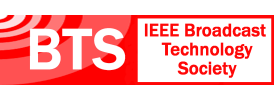- About
- Members
- Sponsors
- Subcommittees
- About Our Subcommittees
- Technology Group 3
- Implementation Team 1 – Advanced Emergency Information
- Implementation Team 2 – India
- Implementation Team 3 – ATSC 3.0 Conformance
- Implementation Team 4 – Brazil
- Implementation Team 5 – Tower Network
- Implementation Team 7 – Caribbean
- Implementation Team 8 – Automotive
- Planning Team 4 – Future Broadcast Ecosystem Technologies
- Planning Team 5 – Automotive Applications
- Planning Team 6 – Global Recognition of ATSC 3.0
- Planning Team 9 – Sustainability
- Technical Documents
- News
- Events
- Spotlight ATSC 3.0
- Contact Us
- Member Login
- Member Meetings
- Advanced Search
Search Site
Member Links
- About
- Members
- Sponsors
- Subcommittees
- About Our Subcommittees
- Technology Group 3
- Implementation Team 1 – Advanced Emergency Information
- Implementation Team 2 – India
- Implementation Team 3 – ATSC 3.0 Conformance
- Implementation Team 4 – Brazil
- Implementation Team 5 – Tower Network
- Implementation Team 7 – Caribbean
- Implementation Team 8 – Automotive
- Planning Team 4 – Future Broadcast Ecosystem Technologies
- Planning Team 5 – Automotive Applications
- Planning Team 6 – Global Recognition of ATSC 3.0
- Planning Team 9 – Sustainability
- Technical Documents
- News
- Events
- Spotlight ATSC 3.0
- Contact Us
- Member Login
- Member Meetings
- Advanced Search
Someone You Should Know
Posted on January 1, 2015 in ATSC News
Brian Markwalter
SVP, Research & Standards, Consumer Electronics Association
As 150,000-plus technology aficionados head into Las Vegas this month for the global gathering place for innovation known as International CES®, THE STANDARD sat down with Brian Markwalter, Senior Vice President, Research & Standards, at the Consumer Electronics Association (CEA®), producer of the annual tech extravaganza.
Markwalter, a long-time member of the ATSC Board of Directors, began his career in the electronics industry by working for a small Atlanta consulting company involved in R&D and defense subcontracting. He was deeply involved in a powerline communications technology, which was in the running to be adopted as a home automation standard by CEA’s predecessor, the Electronics Industries Association.
Although his company’s proposed technology was not integrated into the EIA’s CEBus standard, Markwalter enjoyed working with EIA so much that he moved his family to the Washington, D.C. area and began working directly for EIA in 1993, during the height of the ATSC digital TV standard-setting process and Grand Alliance era.
CEA and the ATSC
For over eight years, Brian Markwalter has been a leading voice in the ATSC as CEA’s designated Board Member. As a founding member of the ATSC through the Joint Committee on InterSociety Coordination, CEA has a permanent board member position, which Markwalter proudly holds.
“CEA naturally represents the TV receiver constituency in ATSC. We try to bring to the table as much information as possible on TV trends and capabilities,” Markwalter explains. CEA’s technical representative has also chaired the “S10” specialist group that maintains ATSC A/74 and its receiver recommended performance guidelines.
The Importance of ATSC Membership
“Being deeply involved with the ATSC puts me in direct contact with amazing leaders from all aspects of the broadcasting and CE industries as we plan the future of television generally and future ATSC capabilities specifically. Understanding the fast-moving technologies that consumers use and developing standards to meet future consumer needs is a challenge that the ATSC takes to heart. It is fun, inspiring work,” Markwalter says.
Since analog TV receivers first appeared in American homes 75 years ago, consumers have had a love affair with the glowing screen that brings the world to the living room. Today, television is nearly ubiquitous, with the highest home penetration of any CE device.
“We at CEA, and also at ATSC, understand that viewing patterns are evolving in how people consume content. ATSC is doing critical work to develop capabilities that will be responsive to these changes, whether it’s delivering personalized content to mobile devices or incredible 4K Ultra HD broadcasting. As a representative of the whole CE industry, I think it’s really important for CEA to be part of this work,” says Markwalter.
Boldly Going Where No Man Has Gone Before
When asked what’s the most surprising thing he’s learned as an ATSC member, technologist Markwalter shared, “The STAR TREK TV series has had such an enduring impact on our broadcast television system. This is not really a surprise, since STAR TREK seems to have predicted how important video would become for entertainment and communication. Seriously, I’ve learned that there are hundreds of fantastic engineers in the TV business who work long hours to develop standards for everyone to use.”
Outside of his roles at CEA and on the ATSC Board, Markwalter is a busy parent of four with three sons already having left the house, a high school daughter at home and two horses in a stable. If that doesn’t sound busy enough, the Markwalter family spends many of their weekends in Virginia attending his daughter’s equine competition events.
Posted in ATSC News
News Categories
News Archives
Subscribe
Subscribe to The Standard, our monthly newsletter. Learn More
Join ATSC
ATSC is a membership organization with both voting and observer categories. Voting members include corporations, nonprofit organizations, and government entities, and they participate actively in the work of ATSC. Observers are individuals or entities not eligible to be a voting member.
Subscribe to our Newsletter
Subscribe to The Standard, our monthly newsletter, to stay up-to-date with ATSC news and events around the world.
Site Links
Contact Us
Advanced Television Systems Committee, Inc.
1300 I Street NW, Suite 400E
Washington, DC 20005
Do you have questions about ATSC?
About ATSC
The Advanced Television Systems Committee, Inc., is an international, non-profit organization developing voluntary standards and recommended practices for digital terrestrial broadcasting. ATSC member organizations represent the broadcast, broadcast equipment, motion picture, consumer electronics, computer, cable, satellite, and semiconductor industries. ATSC also develops digital terrestrial broadcasting implementation strategies and supports educational activities on ATSC standards.
© 2024 ATSC







































